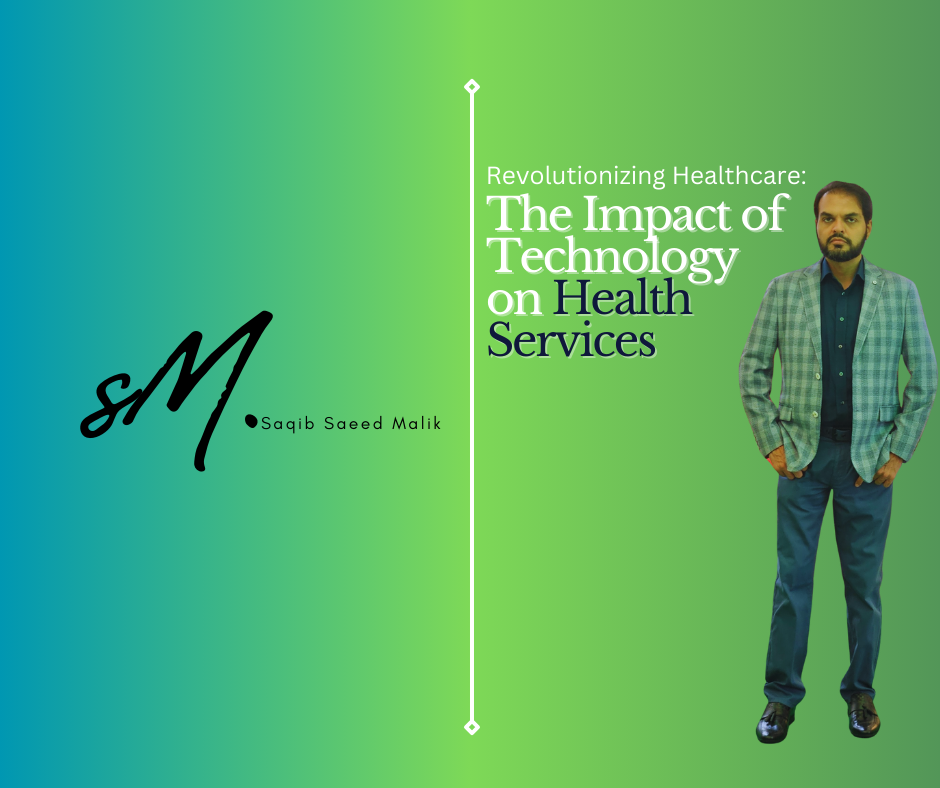In today’s fast-paced world, where technology reigns supreme, it’s no surprise that the healthcare industry has undergone a significant transformation. One individual at the forefront of this revolution is Saqib Saeed Malik, a visionary leader who has dedicated his career to pioneering excellence in health industry leadership.
As Managing Director, Saqib Saeed Malik has witnessed firsthand the profound impact that technology has had on healthcare services. Gone are the days of relying solely on traditional methods; instead, advancements in technology have paved the way for a new era of healthcare delivery.
One of the most notable ways in which technology has revolutionized healthcare is through improved efficiency and accessibility. With the advent of telemedicine, patients can now consult with healthcare providers from the comfort of their own homes, eliminating the need for time-consuming and often costly trips to the doctor’s office. This has been particularly beneficial for individuals in rural or underserved areas who may not have had access to adequate healthcare services otherwise.
Moreover, technology has empowered patients to take a more active role in managing their own health. From wearable fitness trackers that monitor heart rate and activity levels to mobile apps that allow users to track their diet and medication intake, individuals now have unprecedented access to real-time health data. This not only promotes greater awareness and accountability but also enables healthcare providers to deliver more personalized and effective treatment plans.
In addition to enhancing patient care, technology has also revolutionized the way healthcare professionals collaborate and communicate with one another. Electronic health records (EHRs) have replaced cumbersome paper-based systems, streamlining the sharing of patient information across different healthcare settings. This not only improves coordination of care but also reduces the likelihood of medical errors and ensures that providers have access to the most up-to-date information when making treatment decisions.
Furthermore, technological innovations such as artificial intelligence (AI) and machine learning have the potential to revolutionize diagnosis and treatment. By analyzing vast amounts of patient data, AI algorithms can identify patterns and trends that may not be immediately apparent to human clinicians, leading to more accurate and timely diagnoses. Similarly, machine learning algorithms can help predict patient outcomes and recommend personalized treatment plans based on individual characteristics and medical history.
However, despite the numerous benefits that technology has brought to the healthcare industry, it’s important to acknowledge that it is not without its challenges. Issues such as data privacy and security, interoperability between different systems, and the digital divide must be addressed to ensure that all individuals have access to high-quality healthcare services.
In conclusion, the impact of technology on healthcare services cannot be overstated. From improving efficiency and accessibility to empowering patients and enabling more effective collaboration among healthcare professionals, technology has revolutionized every aspect of the healthcare industry. As leaders like Saqib Saeed Malik continue to push the boundaries of innovation, the future of healthcare looks brighter than ever before.

